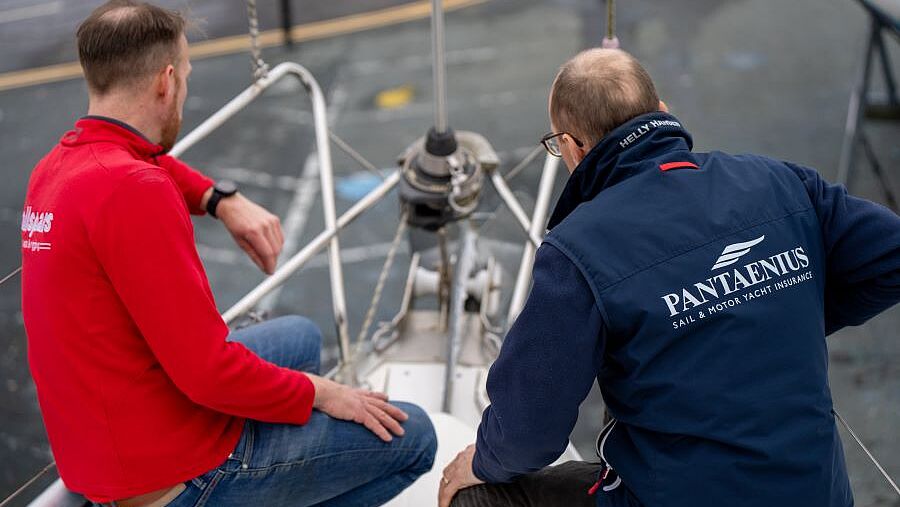Essential Yacht Rigging Insights: Advice from Allspars
Embarking on a sailing adventure is a thrill, but ensuring your yacht's rigging is shipshape is essential for a safe voyage. Award-winning UK Riggers, Allspars offer some straightforward advice to keep your rigging in check.

At Allspars, we recognise the importance of evolving working practices and embracing improvements in the yacht rigging industry.
commented Andy Postle, “We believe that adhering to proper guidelines is crucial for enhancing safety and ensuring the longevity of rigs. By continuously incorporating these changes, we strive to prevent failures and promote a safer sailing experience for all.”
Here's a closer look at what they suggest for rigging maintenance and why it is vital for every successful sailing journey:
Routine Checks on Every Sail
Every time you step on board, conduct a quick check on split pins at all chainplates, especially the forestay at the stem head. Ensure the rigging feels correctly tensioned. If anything feels slack or vaguely wobbly, inspect it further.
Seasonal Inspections Matter
At the beginning and end of each season, perform a full up and down visual inspection. Pay special attention to load-bearing points, check split pins, and scrutinise moving parts for wear or cracks.
Professional Rig Checks
Engage a qualified and experienced rigger every 2-3 years for a full visual inspection. Unstep the mast every 5 years for a comprehensive examination, as certain areas are inaccessible while stepped.
Maintain Correct Rig Tension
Correct rig tension is essential for standing rigging's lifespan. Too loose, and it fatigues quickly; too tight, and it stresses the boat. Correct tension not only ensures safety but also improves sailing performance.
Common Causes of Rig Failure
Cyclic failure or fatigue is a common culprit leading to catastrophic rig failure. Split pins coming out of clevis pins, especially on forestays, and wear and tear, particularly corrosion under stainless steel fittings, contribute to failures.
Choosing a Rigging Specialist
Opt for a company specialising in rigging rather than a jack of all trades. Specialists with extensive experience and a focus on rigging will have the right equipment and awareness of potential issues. Choose a company that carries stock to avoid delays in obtaining parts.
Latest Innovations in Yacht Rigging
For larger boats, innovations such as advanced mainsail reefing systems and electrical motor-driven upgrades enhance sail handling. Selecting high-quality products, such as Dyneema-based ropes, contributes to better sail shape and longevity.
Rigging Maintenance Standards
Annual checking, servicing, and tuning are essential for rigging longevity. Despite the multitude of moving parts, many masts and rigging are neglected, leading to failures. The industry is working on global recommendations for max years or mileage for yachts up to 24m with wire rigging, set to be adopted in 2024 by marine federations globally.
Simon Firth, Claims Manager at Pantaenius UK said, “While routine checks on obvious areas like split pins and rig tension are indeed important, our most recent claims have highlighted failures in structural components at or below deck level. In these cases, failures due to weld fatigue and advanced corrosion have led to catastrophic total rig loss. These parts, usually hidden, handle big loads, especially in heavy conditions. So, yacht owners should regularly check them to mitigate the risk of such failures, particularly when navigating challenging waters. If a rig is lost over the side, cutting it away quickly, rather than trying to save it, is key for everyone’s safety.”
He also points out “Although wear and tear or corrosion-related failures may not be covered by insurance, it's essential to review the specific terms of your policy, as damage directly resulting from these failures may be covered, so check the wording carefully."
Clearly from this comprehensive advice, care in routine checks and adherence to professional inspections are not just best practices but critical investments in the safety and longevity of your yacht's rigging, giving peace of mind on every voyage.
